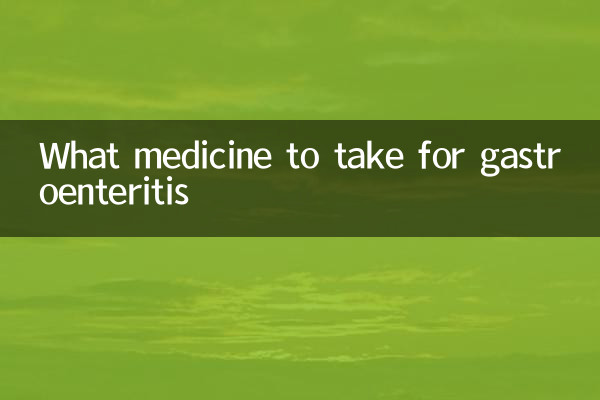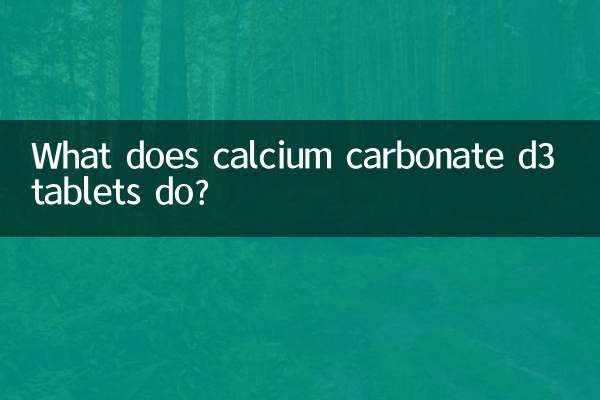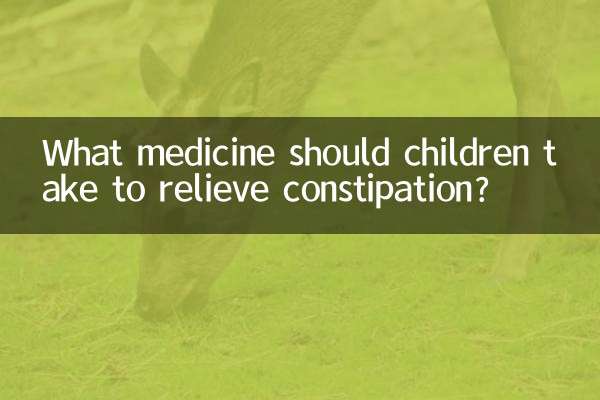What medicine to take for gastroenteritis: Analysis of hot topics on the Internet in the past 10 days
Gastroenteritis is a common digestive disorder that is usually caused by viral, bacterial infection or improper diet. Recently, there has been a lot of discussion on gastroenteritis medication across the Internet. This article will provide you with structured data and suggestions based on hot topics in the past 10 days.
1. Common symptoms of gastroenteritis

The main symptoms of gastroenteritis include abdominal pain, diarrhea, nausea, vomiting and fever. Symptoms vary in severity depending on the cause.
| Symptom type | Common symptoms |
|---|---|
| abdominal pain | Abdominal cramps or dull pain, usually around the umbilicus or lower abdomen |
| Diarrhea | Increased frequency of bowel movements, watery or mucous stools |
| Nausea and vomiting | Stomach upset, possibly with vomiting |
| Fever | Increased body temperature, more common in bacterial gastroenteritis |
2. Commonly used drugs for gastroenteritis
According to popular discussions in the past 10 days, gastroenteritis medications mainly include the following categories:
| drug type | Representative medicine | function |
|---|---|---|
| antidiarrheal medicine | Montmorillonite powder, loperamide | Relieve diarrhea symptoms |
| antibiotics | Norfloxacin, levofloxacin | For bacterial gastroenteritis |
| Probiotics | Bifidobacterium, Lactobacillus | Regulate intestinal flora |
| Antispasmodics | Belladonna tablets, anisodamine | relieve abdominal pain |
| rehydration salts | oral rehydration salts | Prevent dehydration |
3. Dietary recommendations for gastroenteritis
In addition to drug treatment, dietary conditioning is also very important. The following are the dietary suggestions that have been hotly discussed in the past 10 days:
| diet stage | Recommended food | Things to note |
|---|---|---|
| acute phase | Rice soup, porridge, noodles | Avoid greasy and spicy food |
| recovery period | Steamed egg, banana, apple puree | Eat small meals frequently and gradually recover |
| recovery period | Lean meat, vegetables, yogurt | Ensure nutritional balance |
4. Preventive measures for gastroenteritis
The key to preventing gastroenteritis is to maintain good hygiene and eating habits:
| Precautions | Specific methods |
|---|---|
| Food hygiene | Cook food thoroughly and avoid raw or cold food |
| personal hygiene | Wash hands before meals and after using the toilet, and disinfect tableware |
| Clean environment | Keep the kitchen and bathroom clean |
| Enhance immunity | Regular work and rest, moderate exercise |
5. When Do You Need Medical Treatment?
Although most gastroenteritis can resolve on its own, the following situations require prompt medical attention:
| Symptoms | Possible risks |
|---|---|
| persistent high fever | Possible serious infection |
| bloody or dark stools | gastrointestinal bleeding |
| severe dehydration | Need intravenous fluids |
| Symptoms not relieved for more than 3 days | Need further inspection |
6. Summary
The treatment of gastroenteritis requires the selection of appropriate drugs based on the cause and symptoms, as well as dietary adjustments. The structured data and suggestions provided in this article are based on popular discussions in the past 10 days. We hope to provide you with a reference. However, please note that you should follow your doctor’s advice when taking specific medications, and do not abuse antibiotics on your own.
If you have symptoms of gastroenteritis, it is recommended to observe the changes in symptoms first and seek medical treatment in time if necessary. Maintaining good hygiene is key to preventing gastroenteritis.

check the details

check the details